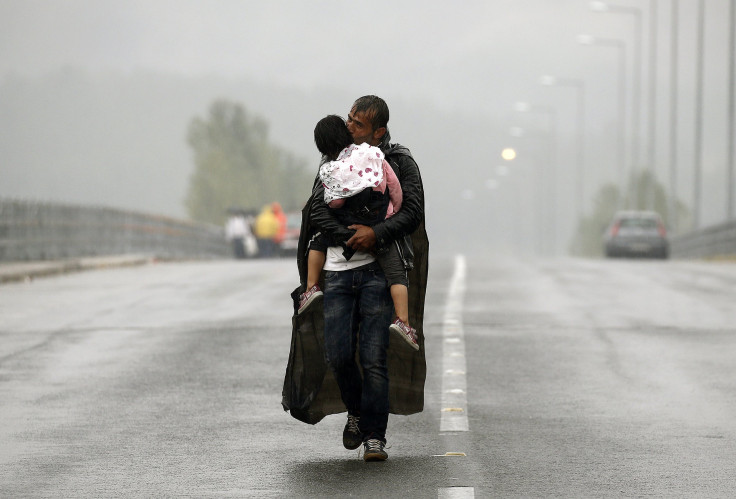Senate Democrats Call For Vote On Syrian Refugees And Donald Trump Muslim Ban

Senate Democrats effectively blocked a vote Wednesday on a bill that would have halted the U.S. refugee resettlement program, USA Today reported. The Senate voted 55-43 to advance the bill, just a few shy of the 60 votes required.
Senate Minority Leader Harry Reid offered up a sort of compromise; he offered to allow the bill to advance only if Republican leaders agreed to permit a vote to denounce Republican presidential candidate Donald Trump’s proposal to ban all Muslims from entering the United States. However, Senate GOP leaders rejected the offer.

“Republican leaders ... have pledged loyalty to Donald Trump and his disgraceful policies if he's the nominee," Reid said, according to USA Today. "Republicans who support these illogical plans should be prepared for the next logical step, voting on Donald Trump’s vision for America."
The bill had passed in the House in November and would have required the FBI to certify that refugees from Iraq and Syria had undergone "a background investigation sufficient to determine" whether the person were a national security threat, according to U.S. News and World Report. In order to enter the U.S., the refugee would have had to be certified to Congress by the Department of Homeland Security, the FBI and the director of national intelligence. The extra certification was expected to be so difficult that it would have essentially halted the admission of Syrian and Iraqi refugees fleeing war-torn regions in the U.S.
"Senior law enforcement and intelligence officials have expressed concerns, and [Homeland Security] Secretary Jeh Johnson has said that 'organizations such as [the Islamic State group] might like to try to exploit this program,'” Senate Majority Leader Mitch McConnell said, according to USA Today. "Is it any wonder that the citizens we represent are concerned?"
During the current screening process, which takes roughly 18 to 24 months, refugees are assessed by the National Counterterrorism Center, the FBI and the departments of Homeland Security, State and Defense. Following the Paris terrorist attacks in November, in which one of the terrorists reportedly entered Europe through Greece amid a group of Syrian refugees, a slew of governors across the U.S. announced that they opposed accepting Syrian refugees into their states. President Barack Obama had announced in September his plan to allow 10,000 Syrians entry to the U.S. in 2016.
© Copyright IBTimes 2025. All rights reserved.






















